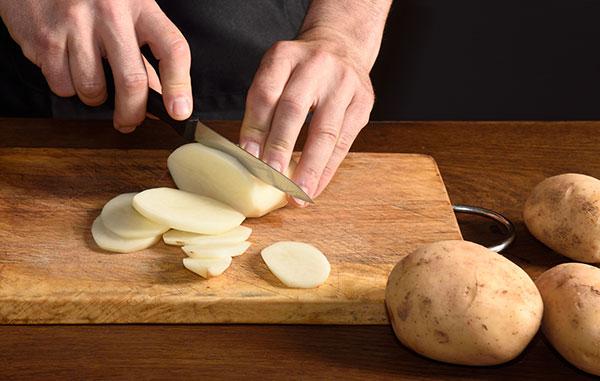South African potato growers are lobbying the government to institute a temporary ban on imports of frozen potato chips from the European Union. This comes as a consequence of market conditions impacted by COVID-19.
Earlier in the pandemic, potato growers in Europe were also under immense pressure. With the summer of 2020 all but cancelled across the European Union, farmers there were faced with mountains of unwanted potatoes. Some estimate that up to 750,000 tons of raw potatoes went to waste.
YOU MIGHT LIKE: We tasted 6 of SA’s best tomato sauces: did your favourite one win?
With bars, restaurants and street markets all closed under lockdown, there were simply no customers to buy French fries. Belgians were urged to eat fries at least twice a week, as a patriotic duty to keep the potato economy moving.
Now it seems as if the chips are down for South African farmers too, as Europe eyes secondary markets where they can sell their surplus of frozen and prepared potato products.
Since 2000/01, potatoes have accounted for approximately 45% of total vegetable crops produced in South Africa and contribute about R8.5 billion to the economy. Potatoes are not only important nutritionally, but are also integral to small business owners like hawkers and those who own takeaway shops.
According to The Potato and Vegetable Processors Forum (PVPF), South Africa is a key destination for processed potato product exports from the EU, where there is a history of dumping. This is set to have a negative impact on the country’s agricultural sector and the surrounding communities. Cheap European frozen potatoes are a real threat to the whole local potato industry.
The Potato and Vegetable Processors Forum (PVPF), which includes PSA, McCain Foods South Africa, Natures Garden and Lamberts Bay Foods is the leading industry lobby group.
READ NEXT: 5 tips for making perfectly fluffy mashed potatoes every time
André Jooste, CEO of Potato South Africa (PSA), says that the local potato industry has already suffered significantly from a decrease in demand as a result of COVID-19 related regulations, such as the closure of restaurants and fast food outlets, restricted trade and movement of informal traders. “The result was a significant drop in prices far below break-even prices for producers and a build-up of stock levels in the processing sector. A further blow due to low-priced imports from other countries could be catastrophic.”
“By raising concerns against the importation of these products, we have an opportunity to buy and support the local industry and help rebuild the South African economy in a time when it is more critical than ever before, especially if one considers the strong labour multiplier of the industry,” he added.
COOK AT HOME: Spicy potato and chipolata stew
And it’s not just the farmers who are affected. There are more than 6800 people employed full time in the sector, with many worried that they may be facing unemployment.
“As such, while we wait for an answer from the government, we appeal to buyers and other decision-makers to think twice about where they’re sourcing their potato product from; to ensure they continue to support the local industry that so desperately needs to recover from the pandemic and keep operations afloat,” concluded Jooste.

